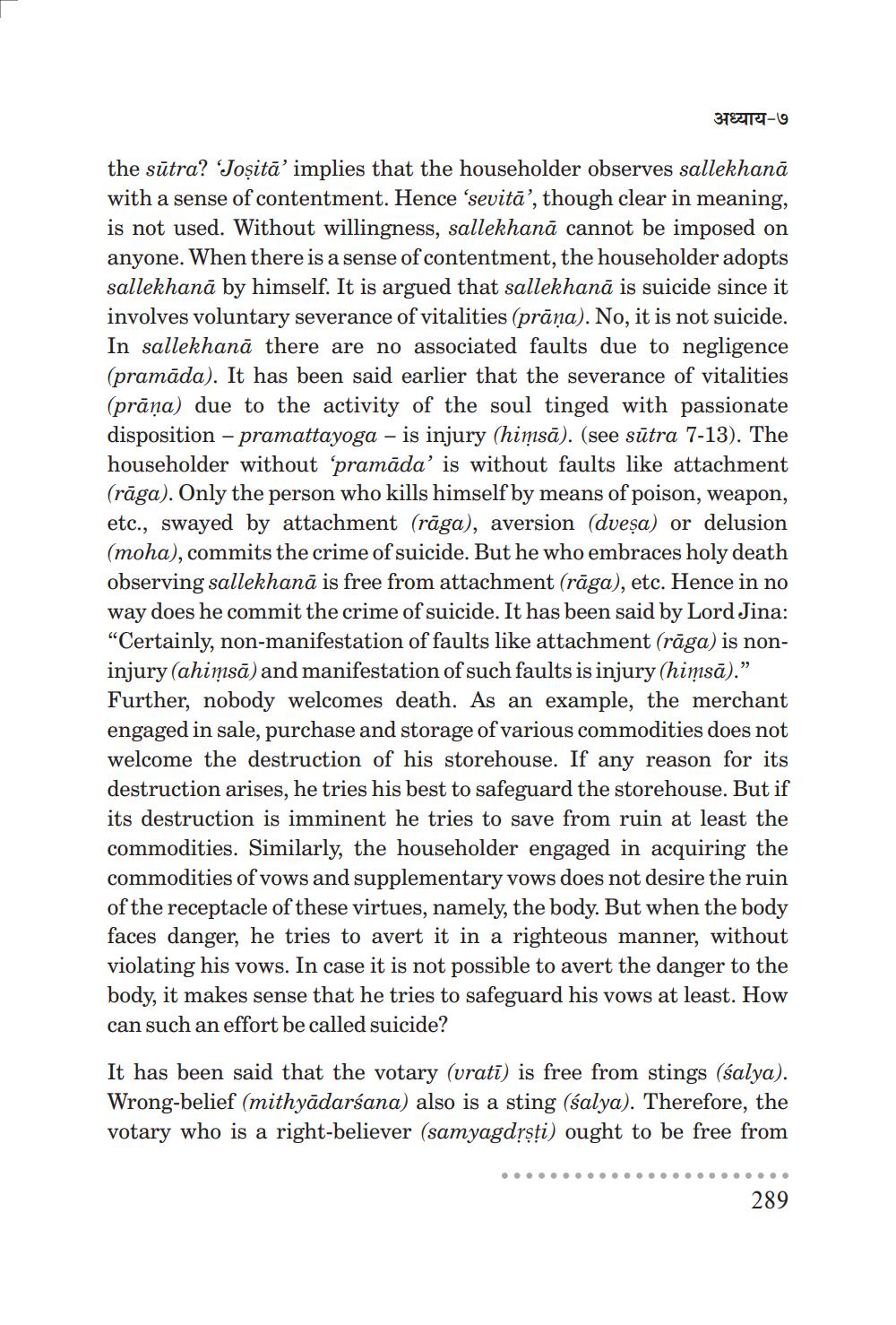________________
अध्याय-७
the sūtra? Jositā'implies that the householder observes sallekhana with a sense of contentment. Hence 'sevitā”, though clear in meaning, is not used. Without willingness, sallekhanā cannot be imposed on anyone. When there is a sense of contentment, the householder adopts sallekhanā by himself. It is argued that sallekhanā is suicide since it involves voluntary severance of vitalities (prāna). No, it is not suicide. In sallekhanā there are no associated faults due to negligence (pramāda). It has been said earlier that the severance of vitalities (prāņa) due to the activity of the soul tinged with passionate disposition - pramattayoga – is injury (hiņsā). (see sūtra 7-13). The householder without 'pramāda' is without faults like attachment (rāga). Only the person who kills himself by means of poison, weapon, etc., swayed by attachment (rāga), aversion (dveşa) or delusion (moha), commits the crime of suicide. But he who embraces holy death observing sallekhanā is free from attachment (rāga), etc. Hence in no way does he commit the crime of suicide. It has been said by Lord Jina: “Certainly, non-manifestation of faults like attachment (rāga) is noninjury (ahimsā) and manifestation of such faults is injury (himsā).” Further, nobody welcomes death. As an example, the merchant engaged in sale, purchase and storage of various commodities does not welcome the destruction of his storehouse. If any reason for its destruction arises, he tries his best to safeguard the storehouse. But if its destruction is imminent he tries to save from ruin at least the commodities. Similarly, the householder engaged in acquiring the commodities of vows and supplementary vows does not desire the ruin of the receptacle of these virtues, namely, the body. But when the body faces danger, he tries to avert it in a righteous manner, without violating his vows. In case it is not possible to avert the danger to the body, it makes sense that he tries to safeguard his vows at least. How can such an effort be called suicide?
It has been said that the votary (uratī) is free from stings (salya). Wrong-belief (mithyādarśana) also is a sting (salya). Therefore, the votary who is a right-believer (samyagdęsti) ought to be free from
........................
289




